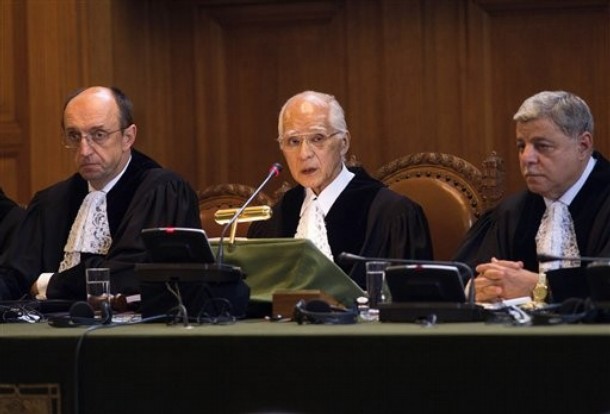
From Dan Bilefsky, the New York Times: Kosovo’s unilateral declaration of independence from Serbia in 2008 did not violate international law, the United Nations’ highest court said Thursday in a ruling that Kosovo heralded as a victory but that legal experts warned could spur separatist movements around the world.
Legal experts said that while the International Court of Justice had ruled that Kosovo’s declaration of independence was legal, it had avoided saying that the state of Kosovo was legal under international law, a narrow and carefully calibrated compromise that they said could allow both sides to declare victory in a dispute that remains raw even 11 years after the war there.
Political analysts said the advisory opinion, passed in a 10-to-4 vote by the court judges, is likely to spur other countries to recognize Kosovo’s independence. Of the 192 countries in the United Nations General Assembly, so far only 69, including the United States and a majority of European Union nations, have recognized Kosovo. …
Kosovo’s ethnic Albanian leadership welcomed the court’s decision.
“This is a great day for Kosovo, and my message to the government of Serbia is, ‘Come and talk to us,’ ” Kosovo’s foreign minister, Skender Hyseni, said after leaving the court, The Associated Press reported.
But Serbia was adamant that it would never recognize what it had previously called a false state, while Russia, one of its staunchest allies, insisted that the court’s decision did not provide a legal basis for Kosovo’s independence. …
Analysts said that the legal legitimacy conferred on the independence declaration by the court could have profound consequences for global geopolitics by potentially being seized upon by secessionist movements in places as diverse as northern Cyprus, Somaliland, Nagorno-Karabakh, South Ossetia, Abkhazia and Transnistria. …
Major European powers and the United States have been at pains to characterize Kosovo as a special case that should not serve as a precedent for other groups hoping to declare independence. But in hearings last December in The Hague, Spain, Russia and China — all of which face secessionist movements in their own borders — argued forcefully that Kosovo should remain a part of Serbia. China was so impassioned that it made its first oral pleading to the court since the 1960s. (photo: AP)
Image: ap%207%2022%2010%20Peter%20Tomka%20Hisashi%20Owada%20Awn%20Shawkat%20Al-Khasawneh.jpg
